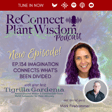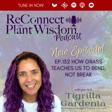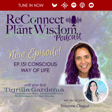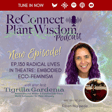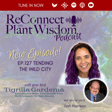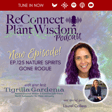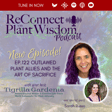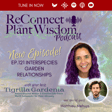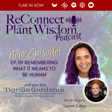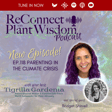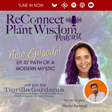
Ep.78 Trying to Make Sense of the World
In this introspective episode of Reconnect with Plant Wisdom, I open up about the challenges I am facing making sense of the world. I've been grappling with the complexities of navigating a world filled with uncertainty. As I reflect on my own struggles, I draw inspiration from the wisdom of plants and the natural world. Through this lens, I explore the significance of embracing our vulnerabilities and finding meaning in our experiences.
I invite you to join me in a conversation about growth, change, and the importance of connecting with both yourself and the ecosystem around you. By recognizing the interconnectedness of our journeys, we can foster a deeper sense of purpose and community.
Join me for a heartfelt exploration that will inspire you to reflect on your own path while connecting with the wisdom of plants.
Topics Covered about making sense of the world
➡️ Embracing vulnerability as a pathway to growth.
➡️ Finding meaning in uncertainty through plant wisdom.
➡️ The importance of community and interconnectedness in personal journeys.
➡️ Nurturing your own unique brilliance in the world.
Resources Mentioned
🌱 What limiting belief is holding you back?
🌱 Befriend Your Limiting Beliefs webinar
🌱 Coaching and Mentorship with me and plants
🌟Connect with nature-conscious creatives, multipotentialites, and naturentrepreneursin the premier online ecosystem that nourishes plant reawakening and community support for accelerated evolution and co-creation with otherkin. >> JOIN OUR COMMUNITY <<
☝🏽ReConnect with Plant Wisdom podcast Ancient and modern knowledge from biology to spirituality about the wondrous ways plants help you lead a Naturally Conscious life. Subscribe on your favorite podcast player.
// Let's work together: book a Discovery Call
// EcoConscious Business Partners:
Get the World's Most Ecological Phone
Shop Here
// Opening and Closing music by Steve Sciulli and Poinsettia from The Singing Life of Plants
// Socialize with me Facebook | Instagram | LinkedIn | Youtube

